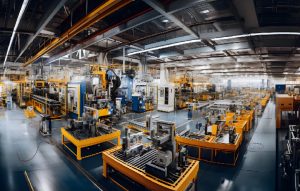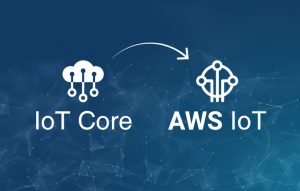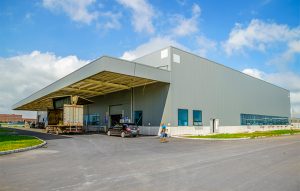Hello Everyone!
And a very good day to all of you!
I’m Nikunj Mistry, Senior Business Development Executive at Softweb Solutions, An Avnet Company.
It has been a while since we connected so here I am today, presenting you with a brand-new podcast episode. We are going to talk about IoT, the trending technology that has acquired a firm position as the central core of every business.
IoT is undoubtedly making our lives easier and convenient. It is streamlining the tedious and time-taking business processes which eventually add up to creating conveniences.
IoT no longer needs an introduction since it has already proved its positive impact upon businesses to a great extent. Allow me to quickly define IoT and its role in making businesses more successful than ever. Let’s begin with the basic element that forms the base of today’s modern business – data.
Every organization requires data for which it relies upon technology. The industry-leading companies are using IoT to gather data from their operational workflows and analyzing it for effective decision-making.
IoT devices are incorporated with the equipment to collect data on their environment and locations. The collected data is then cross-referenced with additional sources of information like ERP systems, etc. Then it is sent to the cloud for processing.
The output received is in the form of useful insights that organizations can use for making effective decisions.
The data requirement differs from company to company depending upon their business needs. For example, a warehouse supervisor will consider collecting information like cycle time, individual worker’s shift time, idle time vs. active time, the time taken to commence an order after submission, daily, weekly and monthly time spent on each job by employees, the cost per job, etc.
Collecting relevant data helps you to store and analyze information about vital aspects of your business.
According to research conducted by Statista, “The total installed base of Internet-connected devices is projected to amount to 75.44 billion worldwide by 2025, which is a fivefold increase in ten years.”
Considering this prediction, the amount of data that organizations will collect is far beyond our imagination. Moreover, companies need very high processing power to derive any tangible value from such a humungous amount of data.
Apart from that, nowadays, enterprises are also increasingly looking to improve their business performance and reduce operational costs of their IoT products.
Use of data as a proactive technique of problem-solving
Talking about the importance of data, we all know that operational managers in factories, warehouses, healthcare facilities and several other sectors work under immense pressure to enhance performance.
Hence, they need to increase productivity, reduce downtime, minimize their turnaround time, etc. This calls for deep analytical abilities. Furthermore, good analysis is required to obtain useful insights on which you can base your vital business decisions.
Data from relevant sources, like operational workflows, etc. must be collected via IoT-enabled connected operations.
How does data lead to operational enhancement?
What is data without analysis? It is of no use. So to make use of data, we need to analyze it. For collecting data, you can equip your workforce and equipment with IoT devices. Since every business, no matter big or small is adapting to these methods, the costs of these solutions have significantly lowered.
One of the advantages of IoT is that you can think of an out-of-the-box solution and get it build. Or, you can also deploy ready-to-use IoT solutions that are designed and developed to solve common problems in workflow operations. These solutions, neither consume a lot of time nor do they burn a hole in your pocket.
Also, you don’t have to hire an entire team of engineers, developers and IT professionals to build it for you. Rather, you can always take help from experts who have hands-on experience in building these solutions to fit your business needs.
Remember, in business, anything that you can track, analyze and evaluate is definite to improve your ROIs.
From IoT to IIoT
IoT is not limited to production, but it is also an essential building block to digitize business. The central core of this technology relies upon high-level networking. It can both interact and analyze.
IoT creates a highly complex ecosystem – IIoT, which is a requirement for Industry 4.0. The ultimate purpose behind it is to create efficient, self-organized production lines where all the systems, equipment and people are interconnected with each other.
This would improve your organization’s complete value-added chain from development, production, marketing and sales to maintenance. It, therefore, indicates the importance of IoT incorporation into operational workflows along with the significance of data for IoT functions.
Now let’s talk about how IoT incorporation in operational processes can drive business value:
IoT implementation improves shop floor control
IoT connectivity and the right analytics platform help manufacturing companies streamline their processes. There are a few strategies to streamline the operation, such as planning and scheduling. Streamlining these processes ensure that the production rate is not too high or too low, but just right. You can also deploy platforms that use machine learning to refine production volumes in real-time and do not require any human involvement.
In a nutshell, the incorporation of these technologies with business processes can organize changeovers and distribution of human employees. This makes it easy to adjust changeover schedule and idle time across the factory to improve overall equipment effectiveness.
IoT brings additional value to manufacturing operations
IoT in manufacturing operations empowers field workers with all the value-added capabilities that it holds within itself. It enables you to improve operations by utilizing the data outside the factory. It also gives precise consumer data. Through monitoring and analyzing consumer patterns, you can fetch accurate data and include it in the production planning.
Manufacturers can connect the factory directly to their supply chain. This way, inventory will be monitored and as soon as some raw material or a component is used, the system will automatically review the latest schedules. Based on the latest updates on inventory, the system can revise the schedules and place orders for maintaining inventory without any human assistance.
IoT augments enterprise resource planning
ERP helps organizations to manage business activities like accounting, procurement, project management and manufacturing that need day-to-day management. ERP and IoT go hand in hand to boost the processes. Reinforcing ERP with IoT data will be beneficial as:
1. Firstly, it improves the availability of data. As we discussed earlier, leveraging IoT capabilities with data analytics will provide you with useful insights to make important business decisions. It will also give you a better understanding of your shop floor and improve other functional areas like customer service, scheduling, planning, inventory management and so on.
2. Secondly, it helps in smooth communications across the enterprise, including internal stakeholders. Moreover, it also improves communication between supply chain vendors and customers who use your company’s products. Interestingly, you can also include their data in forecasting current production.
Summarizing it up
IoT can offer enormous benefits to operations. Though finding the optimal point of IoT involves a comprehensive IoT strategy, committed managers, focus on use cases along with a deep-rooted understanding of the technology. By having a strong hold on these areas and incorporating IoT in operations management, you will deliver substantial values, reap great benefits and build a competitive edge for your competitors.
With this, I’ll end our podcast. Thanks for your time and attention. If you have any questions, please send an email to info@softwebsolutions.com. I’d be happy to answer your questions.
Stay connected and join us for our upcoming podcasts.
Please stay safe with your loved ones!
Goodbye for now!









